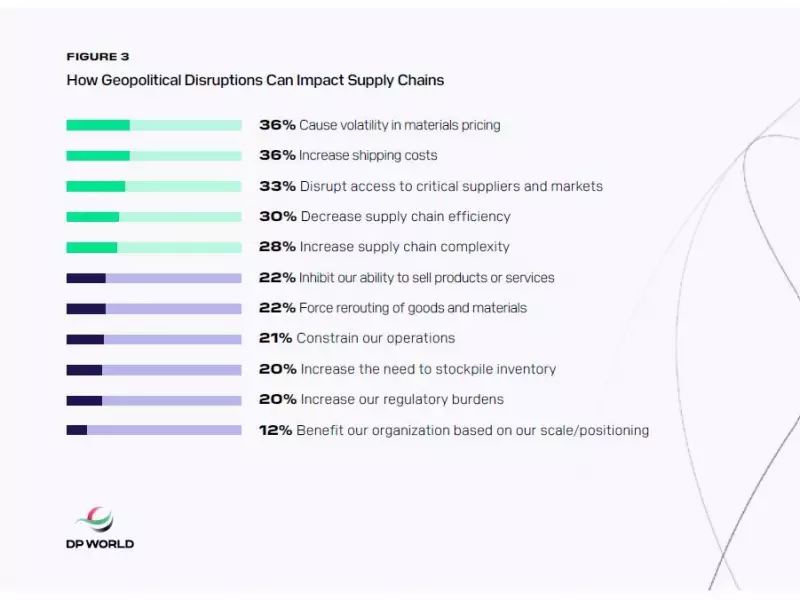
A startling new study from global trade leader DP World has revealed that supply chains worldwide are dangerously unprepared for the rising tide of geopolitical instability. The comprehensive research, which surveyed supply chain professionals across multiple continents, paints a concerning picture of vulnerability in our interconnected global economy.
The Disruption Reality
An overwhelming 96% of executives reported experiencing significant supply chain disruptions due to geopolitical events within the past year alone. This staggering statistic underscores the pervasive nature of the challenge facing businesses that depend on smooth international trade flows.
The most commonly cited threats include:
- Trade restrictions and tariffs
- Regional conflicts and political instability
- Sanctions and compliance challenges
- Infrastructure vulnerabilities
- Transportation corridor disruptions
The Preparedness Gap
Despite near-universal recognition of these threats, the study reveals a concerning preparedness gap. Only 34% of organizations reported having comprehensive contingency plans specifically designed for geopolitical disruptions. This disconnect between awareness and action represents a critical vulnerability for global commerce.
"The speed at which geopolitical landscapes are changing has caught many organizations off guard," explained a senior DP World analyst. "What was considered stable trade territory just two years ago may now present significant operational risks."
Regional Variations in Impact
The research identified notable regional differences in how companies are experiencing and responding to these challenges. European businesses reported the highest frequency of disruptions, while North American companies expressed the greatest concern about future geopolitical tensions affecting their operations.
Asian-based organizations, while experiencing significant challenges, demonstrated somewhat higher levels of preparedness, possibly reflecting longer experience with regional volatility.
Building Resilience for Uncertain Times
The study outlines several key strategies that leading companies are adopting to strengthen their supply chain defenses:
- Diversification of sourcing and transportation routes
- Enhanced visibility and tracking capabilities
- Strategic inventory buffering
- Strengthened partner relationships
- Investment in scenario planning capabilities
As one logistics director participating in the study noted, "The cost of preparedness is significant, but the cost of disruption is catastrophic. We're learning that lesson the hard way."
The findings serve as a wake-up call for businesses operating in today's volatile global environment. With geopolitical tensions showing no signs of abating, the ability to navigate these complex challenges may well determine which companies thrive in the coming years.





